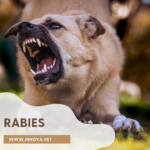Newborn puppies are bundles of joy, we often find ourselves asking what to do to make sure the puppies and mother are safe however you need to know that dog birth can be as hectic as human birth depending on how large the litter is. Below are things to note when expecting a litter.
CREATE ENOUGH SPACE: It is always ideal to create enough space for the mother to be able to stretch so as to avoid her crushing her puppies, whelping box would come in handy.
WARMTH: A warm environment must be created for the puppies to eat and perform metabolic activity because they can’t regulate their body temperature themselves at this early stage, though the puppies will snuggle up with their mum, the environment must not be too exposed.
HEALTHY/CLEAN ENVIRONMENT: The immune system of puppies are not always strong, which is why they need to be birthed in a spotlessly clean place, though the mother will help clean her pups and make sure the environment is as clean as possible by licking with her tongue, she would need a lot of help especially when the litter is large.
Vaccination should not be administered until the 6th week then, they would be given their first shot of DHLPP, and the second and third shots should be given on the 9th and 12th week respectively.
DIET: Pups should not be given formulas until they are 3-4 weeks old (except if you lost the bitch, which you can transfer the litter to a foster mother if available), they should be fed every 2-3 hours for the first few days with breast milk that contains active substances called colostrum (contains active immunoglobulins and antibodies) that can help fight germs and diseases.
When you start noticing they are able to chew, you can now start mixing formulas with can foods, they are still unable to eat solid food at this time but check with your veterinarian about mixing.
Having litter involves lots of work, you will need to be checking for the badly formed ones or the ones that don’t eat like the others and give more attention to them.




